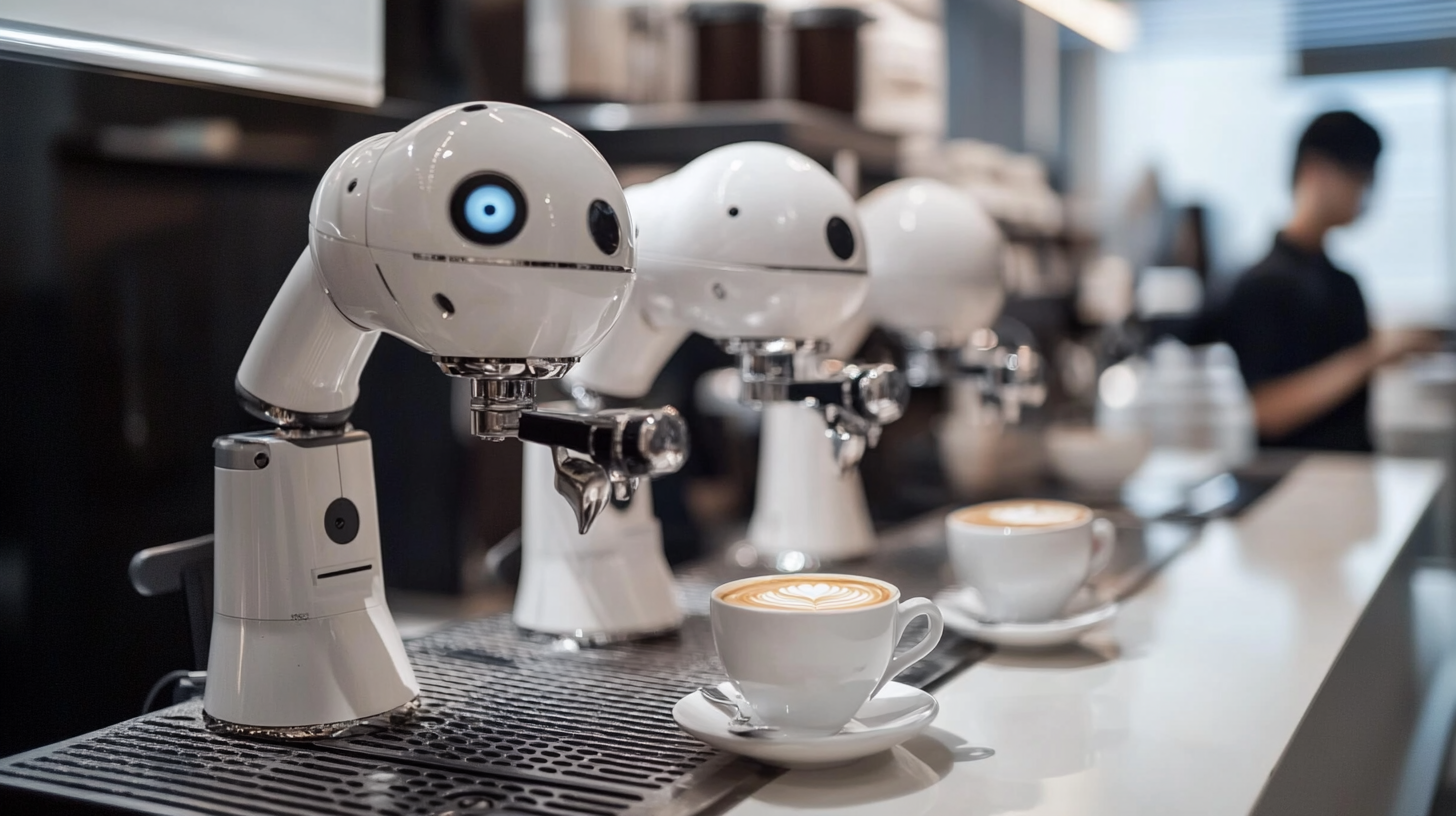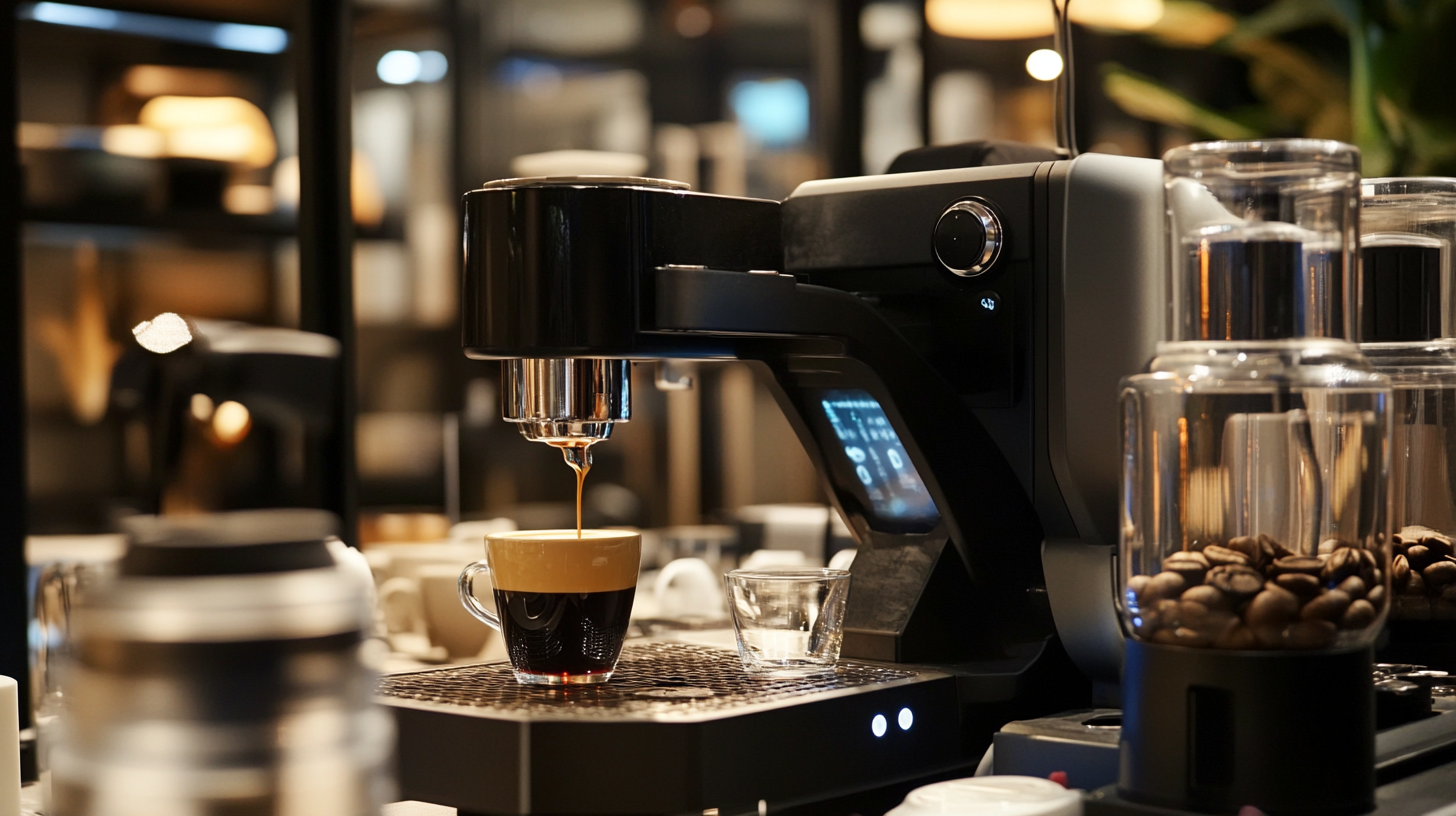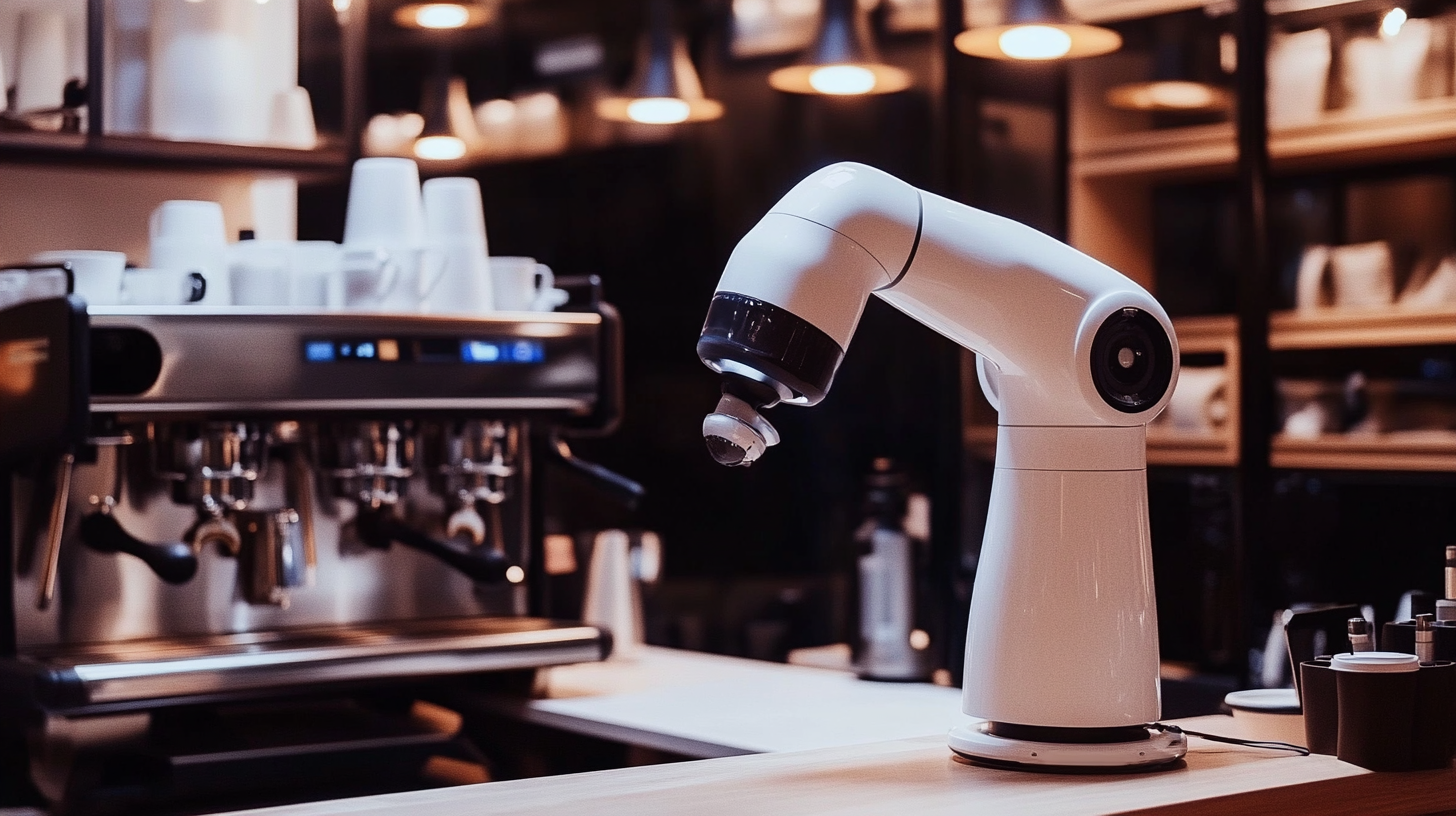Rising Above Tariff Challenges Chinese Coffee Robots Thrive in Singapore Market
The coffee industry is undergoing a transformative phase, particularly in Singapore, where the introduction of innovative technologies such as "Coffee Robots Singapore" is revolutionizing the market. Despite the looming tariff challenges between the U.S. and China, which have threatened traditional supply chains and increased operational costs, Chinese coffee robots have shown remarkable resilience and growth. According to a recent market report by Technavio, the global coffee robot market is expected to grow by over $2 billion by 2025, underscoring an increasing demand for automated solutions in the food and beverage sector. In Singapore, where the café culture thrives, these cutting-edge machines not only enhance efficiency but also cater to the discerning tastes of coffee lovers, leading to a burgeoning acceptance of automation. This trend not only positions Chinese manufacturers favorably in a competitive landscape but also highlights their ability to innovate and adapt in challenging economic climates.

Adapting to Trade Barriers: Chinese Coffee Robots in the Singapore Market
Chinese coffee robots are gaining traction in the Singapore market by skillfully navigating trade barriers that have arisen due to tariffs and regulations. As reported by Research and Markets, the global coffee machine market is projected to reach $10 billion by 2025, growing at a CAGR of 6.2%. This trend is mirrored in Singapore, where the integration of technology in food and beverage services is valued at approximately $1.1 billion, according to Statista.
To thrive in this competitive landscape, Chinese manufacturers have enhanced their robotics through innovative design and functionality, offering versatile machines that brew high-quality coffee while efficiently managing operational costs. A recent survey by Euromonitor International indicates that Singaporeans increasingly favor convenience and quality in their coffee consumption, with 78% of consumers willing to pay more for premium coffee experiences. By adapting to these preferences and bypassing traditional trade hurdles, Chinese coffee robots are positioning themselves as a formidable presence in Singapore's burgeoning coffee culture.
Rising Above Tariff Challenges: Chinese Coffee Robots Thrive in Singapore Market
| Robot Model | Company | Price (USD) | Capacity (Cups/Hour) | Trade Barrier Adaptation |
|---|---|---|---|---|
| BrewBot A1 | CoffeeTech Co. | 5000 | 100 | Custom Software for Compliance |
| EspressoMaster 3000 | Alibaba Robotics | 7500 | 80 | Local Partnerships to Mitigate Tariffs |
| CaféBot Pro | RobotServe Inc. | 6000 | 120 | Flexible Pricing Models |
| JavaMaker 2X | SmartBrew Ltd. | 9000 | 90 | Adapting to Regulation Changes |
| RoastMaster X | CafeInnovate | 11000 | 150 | Import Feedstock Sourcing |
Innovative Technologies Boosting Chinese Coffee Machine Popularity
The global market for fully automatic coffee machines is projected to reach a substantial USD 7.08 billion by 2033, growing at a CAGR of 4.06%, according to a study by Custom Market Insights. This growth underscores a shifting consumer preference towards convenience and quality, driving innovations in coffee machine technology. Chinese coffee robots, embodying these innovations, are finding a lucrative market in Singapore, where their efficiency and smart features resonate well with busy urban lifestyles.
To navigate the competitive landscape, businesses can implement a few key strategies. First, investing in the latest technology to enhance user experience can significantly boost sales. Features like app connectivity and customizable brewing options are increasingly important to tech-savvy consumers. Second, understanding local preferences is essential; tailoring products to appeal to Singaporean tastes can provide a competitive edge in this burgeoning market.
As operators in the coffee machine sector adapt to these trends, they should also monitor the drip coffee maker market, which, having been valued at approximately USD 2.39 billion in 2023, is expected to expand at a CAGR of 3.5% through 2030. This segment's growth indicates a strong demand for both traditional and fully automatic brewing solutions, further highlighting the versatile nature of coffee consumption worldwide.
Strategies for Growth Amidst US-China Tariff Conflicts
In the face of escalating US-China tariff conflicts, Chinese coffee robots have carved out a successful niche in the Singapore market. These innovative machines, known for their efficiency and precision, are well-positioned to meet the rising demand for automation in cafes and restaurants. To flourish in this competitive landscape, businesses must adopt effective strategies that navigate the challenges posed by tariffs while capitalizing on the strengths of their products.
One essential tip for companies is to focus on local partnerships. Collaborating with Singapore-based businesses not only helps to mitigate tariff implications but also fosters trust and community engagement. By aligning with local suppliers and distributors, companies can enhance their brand recognition and streamline their operations, making it easier to penetrate the market effectively.
Another strategy involves leveraging technology and innovation. Investing in research and development can lead to the creation of unique features that distinguish their robots from competitors. This distinguishes their offerings and enables them to justify pricing that aligns with higher production costs incurred due to tariffs. Companies should prioritize continuous improvement and adapt quickly to changing market demands to maintain their competitive edge.

Consumer Demand for Automation: The Rise of Coffee Robots
In recent years, the coffee industry has experienced a significant transformation, fueled by a growing consumer appetite for innovation and efficiency. As urban lifestyles accelerate, the demand for quick and consistent coffee service has led to the rise of coffee robots, particularly in bustling markets like Singapore. These automated baristas are not only designed to deliver precision-brewed caffeine but also to enhance the overall customer experience by reducing wait times and ensuring quality across every cup.
The adoption of coffee robots reflects a broader trend towards automation in various service sectors. Consumers, driven by busy schedules and a desire for convenience, are increasingly turning to technology for their daily coffee fix. This shift has prompted coffee shops and franchises in Singapore to invest in robotic solutions, which not only meet consumer demand but also help businesses navigate labor shortages and rising operational costs. As these robots become more sophisticated, offering personalized beverages and engaging interactions, they are fundamentally reshaping the way we think about coffee service, making automation a key player in the beverage landscape.

The Future of Coffee Automation in Southeast Asia: Trends and Opportunities
The coffee automation sector in Southeast Asia is witnessing a significant transformation, driven by technological advancements and changing consumer preferences. As the demand for high-quality coffee experiences grows, countries like Singapore are becoming fertile ground for the latest innovations in coffee robotics. This trend is poised to redefine how coffee is prepared and consumed, enhancing not only the efficiency of cafés but also the overall customer experience.
Robots designed for coffee brewing and service are equipped with sophisticated algorithms and machine learning capabilities that allow for customization of beverages according to individual taste preferences. Moreover, these automated systems ensure consistency in quality, which is essential for building brand loyalty. As Southeast Asia continues to emerge as a key player in the global coffee market, the integration of automation technologies presents substantial opportunities for growth, especially for local businesses looking to scale operations while maintaining the quality of their offerings. This dynamic environment is attracting investments and fostering collaborations that are essential for the future of coffee automation in the region.
Rising Above Tariff Challenges: Chinese Coffee Robots Thrive in Singapore Market
The chart illustrates the significant growth of the coffee automation market in Southeast Asia from 2019 to 2023, highlighting the rising adoption of Chinese coffee robots in Singapore amidst tariff challenges. The data shows a strong upward trend, indicating increasing investments and market expansion opportunities in this sector.
 -->
-->